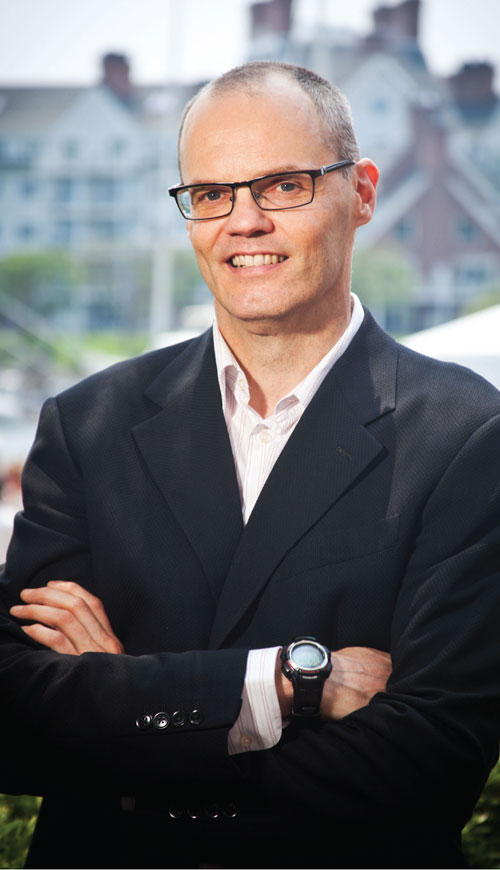PEEK INTO THE FUTURE: In this section, Raini Hamdi asks industry leaders to pen their thoughts on what the future will bring. Here is Frits van Paasschen, president & CEO, Starwood Hotels & Resorts, on the future of hotel management
 Today, technology is evolving faster than companies and consumers can think of ways to use it. This is having a profound impact on how we live our lives, and in the hospitality industry, how global brands cater to the evolving needs of their guests.
Today, technology is evolving faster than companies and consumers can think of ways to use it. This is having a profound impact on how we live our lives, and in the hospitality industry, how global brands cater to the evolving needs of their guests.
If you go back in history, you will see that brands were actually born from technology and change. In our industry, about 50 years ago in the newly arrived jet age, travellers began to look for reliability from hotel brands – a consistent, quiet, clean room from one market to the next. Brands like Sheraton and Le Méridien rode this wave and hotels planted flags in new and exotic locations, creating outposts for Western travellers. Yesterday’s luxury became today’s necessity and, over time, reliability became boring.
Then, as television, sports, music and modern advertising turned the world of brands from black and white to living colour, companies began to create brands with personality and dimension that tapped into people’s imaginations and self-definition. Brands like Nike, BMW and Gucci spoke to people’s attitudes and aspirations, and a new way of living. In our industry this phenomenon led to the creation of W Hotels, bringing global scale to a burgeoning boutique segment focused on lifestyle and design.
As change marched forward, the ‘90s ushered in the Internet age, changing consumer expectations yet again. With new abilities to access a wealth of information, people learned more about the companies behind their favourite brands and wanted those companies to share their personal values, such as sustainability. A cool image was no longer enough. This is why we launched a brand like Element and set goals to reduce our energy and water consumption by 30 per cent and 20 per cent respectively over 10 years. Those actions say a lot about who we are.
Today, technology and social media are accelerating the evolution of brands. People are connected real-time, all of the time, with each other, with their interests and with their brands. They no longer want a one-size-fits-all option, they want a dialogue and they want brands to know what’s on their mind right now. For us, technology is not only changing the way people search and book their stays, it’s changing the way we connect with our guests.
While it is far from simple, we must keep pace because  companies that can deliver personalisation consistently and globally will be set up to win. Global hospitality companies, like Starwood, have the scale to build and connect digital capabilities, pulling together revenue management, Big Data offer engines, reservation systems and information about individual guests – and then tie it all to brand loyalty, a global network of hotels, and thousands of associates to give guests personalised experiences.
companies that can deliver personalisation consistently and globally will be set up to win. Global hospitality companies, like Starwood, have the scale to build and connect digital capabilities, pulling together revenue management, Big Data offer engines, reservation systems and information about individual guests – and then tie it all to brand loyalty, a global network of hotels, and thousands of associates to give guests personalised experiences.
Our oldest hotel, the Goldener Hirsch in Salzburg, was built in 1407 with a tunnel from the general manager’s office overlooking the front desk so he could see and hear guests arriving, come down the stairs and warmly greet each once like an old friend. Big Data is a 21st century version of this tunnel, allowing us to recognise our guests and provide personal hospitality on a global scale across 1,200 hotels in 100 countries. Really knowing our guests allows us to send people offers that matter to them, customise their visit, do more that they actually want, and avoid doing things they don’t, which makes us more efficient operators while providing our guests superior experiences.
By Frits van Paasschen, president & CEO, Starwood Hotels & Resorts
This article was first published in TTG Asia, August 8, 2014 issue, on page 10. To read more, please view our digital edition or click here to subscribe.




















